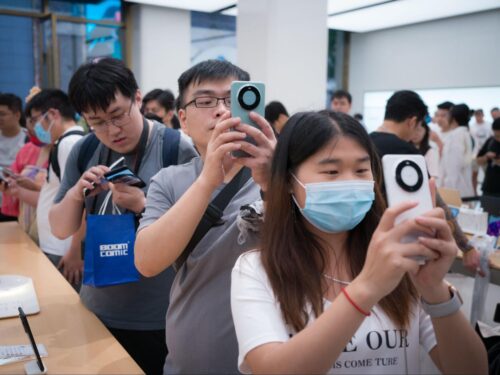Carmaker Geely acquires Meizu, one of China’s oldest smartphone brands
China’s hard-charging auto manufacturer Geely stunned the car world when it bought Volvo in 2010. Now it has taken over struggling consumer electronics brand Meizu, which it hopes will give it an operating system for its cars.

On Friday, automaker Geely Group 吉利汽车 completed the takeover of Meizu 魅族, the consumer electronics manufacturer based in Zhuhai, Guangdong Province.
A Geely holding company, Wuhan Xingji Meizu Technology 武汉星纪魅族科技, which was founded by Eric Li (李书福 Lǐ Shūfú), founder of Geely, is now the sole shareholder of Meizu after acquiring 79.09% of the company’s shares in July 2022. Jack Wong (黄章 Huáng Zhāng), Meizu’s founder and CEO of 19 years, departed the company.
The coldest winter for smartphones
Founded in 2003, Meizu was one of China’s first smartphone manufacturers, and also one of the first Chinese smartphone brands to create a community of users. Jack Wong was among the first of several Chinese tech leaders who have been dubbed “China’s Steve Jobs.” Meizu was also known for its range of MP3 players, which had a reputation for quality sound. Yet unlike Huawei 华为 and Xiaomi 小米, Meizu never made much of a dent in global markets, and the company had a reputation for poor after-sales service.
Gradually, Meizu found itself outperformed and outsold in China by various other brands. By 2021, Meizu’s smartphone sales in China amounted to only 450,000 units, accounting for a market share of just 0.1%. All of China’s smartphone brands, moreover, are currently locked in the depths of the coldest of winters:
- From January to November 2022, mobile phone shipments in China totaled 244 million units, a year-on-year decrease of 23.2%.
- Huawei, Xiaomi, and all the other Chinese brands have suffered from falling sales, high inventory, and job cuts.
- In the third quarter of 2022, Xiaomi shipped 40.2 million units, a decrease of 8.4% year-on-year, and global mobile phone shipments fell by 9% year-on-year and mobile phone shipments in China fell by 11% year-on-year. (However, over the same period, shipments of Apple phones in China soared by 36% year-on-year.)
Why Geely bought Meizu
The long cold winter in the smartphone market is partly indicative of the new reality that smartphones now operate in an ecosystem of products, including smart homes and electric vehicles. This is where Meizu can add a lot of value for a traditional auto company like Geely, which is seeking to develop smart systems for its vehicles.
Mobile phones are now key to operating smart cars, and it’s no surprise that various other brands, including auto companies like NIO 蔚来汽车, BYD 比亚迪, and SAIC 上汽集团, have explored mobile phone manufacturing.
In October 2022, Meizu announced its new in-car system, called Flyme Auto, which the company says will provide seamless connectivity for mobile devices and smart cockpits in Geely cars. Per Meizu, the system will ultimately achieve a “full-scene, immersive, and integrated experience.” In essence, Flyme Auto is envisaged to operate in a similar way to Huawei’s Harmony Operating System for smart cars, and Meizu’s big advantages for Geely lies in software and operating systems, and managing data, for all of which Meizu has vast experience.
On December 23, 2022, Meizu held an annual conference, which was the company’s first major offline event since 2021. The key phrase at the December conference was “full-scene” (全场景 quán chǎngjǐng), and the company is charging ahead with plans to open 1,000 new offline stores in the next three years, and launch a variety of products, including new models of MP3 players and mobile phones, and also augmented reality (AR) glasses, tablets, watches, and smart home products.
The takeaway
Mobile phones are becoming the key to operating a suite of products, including smart cars and homes. Previously a struggling consumer electronics company, Meizu has found a new lease on life in connecting mobile devices with the vehicles of a traditional auto company.






